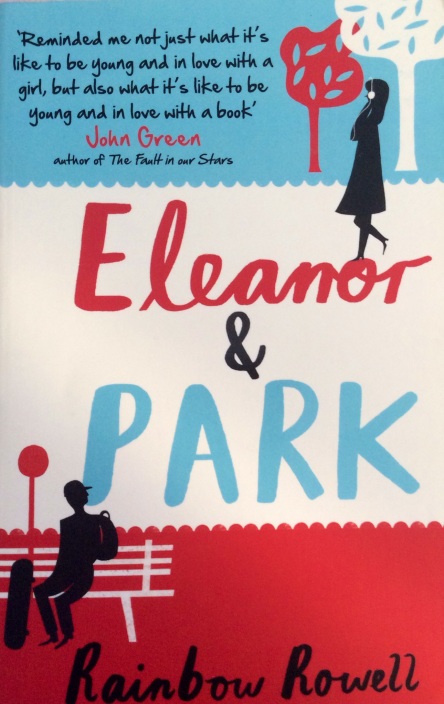Rainbow Rowell is another one of these authors who I knew I would like but took way too long to get around to reading their books. I’d heard such good reviews of Eleanor and Park and I’m glad to say that I finally read it, and loved it.
Eleanor and Park is basically a teenage romance between the two titular characters. Eleanor is the new girl at school and struggles through bullying for being fat and “weird” as well as abuse from her incredibly unpleasant stepdad. Park is one of a few Asian kids at school and is only just cool and unnoticeable to avoid the wrong sort of attention from the kids up the back of the bus.
I really thought I’d grown out of this sort of book. But, then again, maybe no one ever does. The plotline seemed a little simplistic and, overall, “teenage”. However, I found I couldn’t help but dive into it headfirst. I was torn between reading it and not reading it – reading it, because it was such a compelling read that I wanted to just curl up and read it cover to cover in one go, but not reading it, because then I would finish it, and it would be over.
This book really explored the idea of “conventional beauty”. Neither Eleanor or Park think of themselves as attractive in the slightest, while at the same time considering the other to be like a work of art. They both seem to have features that are not what it seen as being generally attractive, and yet can be incredibly beautiful to certain people. park in particular is misled in his belief that Asian boys cannot be attractive, as they look too feminine.
To me, Eleanor and Park seemed so much more realistic than other, more popular young adult romances. The characters aren’t pretentious, or they at least feel acutely embarrassed after saying anything resembling a deep thought or metaphor. “I love you” is painful to say, because they are incredibly self-conscience . They are also self-absorbed, to a degree, because they are people and they are teenagers and that is what makes them so believable.
Trying not to give away any spoilers, I have to say that the ending drove me crazy. I was convinced there had to be just one more page. It took me much longer than it should have to accept that there wasn’t. I think I understand now, but at the time it was nothing short of infuriating.
I would recommend this book to anyone who loves a good drama or a romance of any kind.
